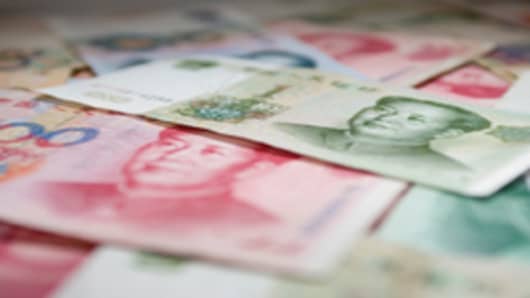The Chinese currency hit a record high of 6.4759 against the U.S. dollar on Wednesday after the People's Bank of China (PBOC) fixed the reference point at the strongest level against the greenback since revaluation in 2005. Some think Beijing is likely to go even further, as the country tries to bring inflation under control.
According to Standard Chartered, the yuan will strengthen to 6.32 against the dollar in the third quarter, and to 6.25 by the fourth quarter. That would mark an appreciation of around 3 percent between now and the end of the year.
That's not all. The bank also said in its report that it expects the PBOC to double the yuan's trading band to 1 percent from the current 0.5 percent in the next few weeks. China last increased the trading band 3 years to 0.5 percent from 0.3 percent.
"(A) wider trading band could create the conditions for modestly faster yuan appreciation near-term to temper persistent inflation," Standard Chartered said.
However, Callum Henderson, Global Head of FX Research at Standard Chartered cautioned that because of China's focus on gradualism, the full limits of the band may not be tested.
"Recent onshore trading of USD-CNY has been orderly, with the gap between the daily high and low averaging just 0.1 percent in May," he noted in a report.
The yuan has been going from strength to strength over the past year, gaining 5.4 percent since it was depegged from the dollar in mid-June 2010. Many economists claim the currency is being increasingly used as part of China's arsenal to tame rising prices. A stronger yuan would help make imports cheaper and potentially cool China's red-hot export sector.
Local Chinese media reported on Wednesday that May's inflation rate - due next week - would accelerate to 5.5 percent from April's 5.3 percent.
Besides helping on the inflation front, a potential broadening of the currency band would be positive for China's dealings on the global stage.
"Such a move would also be welcomed by China's key trading partners as a further step towards a market-based exchange rate," Standard Chartered noted.


